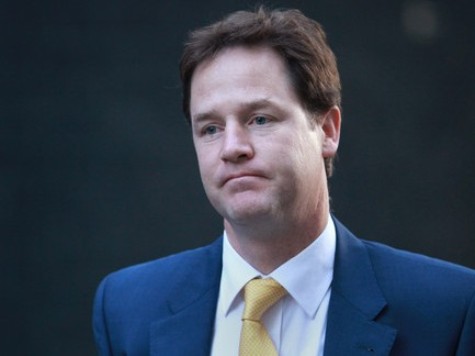After four years as junior partners in the coalition government, the Liberal Democrats on Wednesday closed their final conference before May’s general election in a surprisingly optimistic mood despite dismal poll ratings.
The centrist party won almost a quarter of the vote in 2010 but is currently polling at just eight percent — and is bracing itself to lose up to half its 57 seats in the House of Commons.
The slump is the price paid for going into government with Prime Minister David Cameron’s Conservatives, and helping implement the coalition’s austerity programme to help slash the deficit after the recession.
He and many Lib Dems activists are confident they can keep the bulk of their seats next year, and hope to hold the balance of power if once again neither main party wins a majority.
But the ratings have sparked soul-searching about what role the party plays in an increasingly fragmented political landscape.
– Dividing lines –
Senior Lib Dem figures have set out dividing lines this week with their Tory coalition partners, as well as the opposition Labour party, while taking care not to make promises that might make a coalition with either next year impossible.
Leader Nick Clegg, the deputy prime minister, condemned Cameron’s promise at the Tory conference last week for a £7.2 billion (9.2 billion euro, $11.6 billion) tax cut as an “unfunded moon-on-a-stick type promise”.
He also heavily criticised the Tories’ proposal to further squeeze the welfare budget and its plans to abandon the European Convention on Human Rights.
But Clegg hinted he might be open to agreeing to Cameron’s promised in-out referendum on Britain’s membership of the EU in 2017, saying he would “relish” a chance to defend the European Union.
The conference slogan, “Stronger Economy, Fairer Society”, reflects the Lib Dems’ claim to be better at managing the finances than Labour and kinder than the Tories — and a “restraining” influence on either in a coalition government.
But this approach has attracted criticism that the Lib Dems no longer have a clear message of their own — particularly as their flagship policies have been adopted by the other parties.
The Tories have taken on a Lib Dem pledge to raise the threshold at which people pay income tax, while Labour has adopted the idea of a tax on expensive homes.
– ‘This is your fate’ –
For decades, the Lib Dems were Britain’s party of protest, attracting students, anti-war campaigners and those who wanted to register their displeasure with mainstream politics.
But many of these voters have now deserted them, particularly young people after the Lib Dems abandoned their 2010 pre-election pledge to abolish student tuition fees.
Peter Kellner, the president of polling company YouGov, put the party’s situation bluntly at a conference fringe meeting.
Kellner warned the outcome of the election was unpredictable because of the UK Independence Party (UKIP), which has surged in the past year at the expense of all the mainstream parties.
Some opinion polls put Nigel Farage’s anti-immigration, anti-EU party on 17 percent, a showing that could upset the political balance in many constituencies.
Lib Dem party president Tim Farron refused to be pessimistic, telling delegates: “Our disappearance has been written up several times. It’s up to us to make our own luck.”

COMMENTS
Please let us know if you're having issues with commenting.